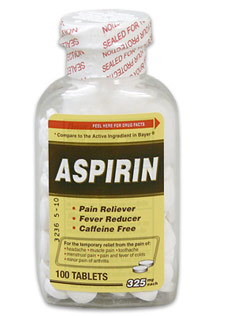|
|
Salicylate Intolerance |
|
Question: I don't know whether Dr Joneja knows the answer to this but I was diagnosed allergic to salicylate in 1993. I kept to the diet sheet sent to me by AllergyUK until about two years ago. Answer: This question provides me with a good opportunity to dispel some myths about salicylate sensitivity. First of all, salicylate sensitivity is not an allergy. It may sound like an argument in semantics, but in fact it is important to understand the difference between an allergy and a so-called intolerance reaction to a food ingredient. The two are entirely different reactions with different diagnostic processes and methods of treatment and management. An allergy involves a complex response of the immune system, involving activation of T cell lymphocytes, cytokines, antibodies, and inflammatory mediators which act on body systems to produce typical allergy symptoms. An intolerance is quite distinct: it typically involves deficits in enzyme systems or other biochemical processes and is not caused by an immunological response. You can learn about the important differences in any of my books, especially Dealing with Food Allergies which you can buy here. An important detail about salicylate intolerance or sensitivity is that there are no tests to diagnose such a condition. In fact, some practitioners question its authenticity as a diagnosis. The idea of salicylate intolerance was popularised by Anne Swain in her Ph.D. thesis at the University of Sydney, Australia in 1988. You can access her thesis here. I would be interested to know what tests were employed in your diagnosis of salicylate “allergy” in 1993. Because the diet is so restrictive (a great many foods contain varying levels of salicylates), if any of them were responsible for a person’s symptoms, they would more than likely be excluded on the salicylate restricted diet, even if unrelated to a reaction to salicylate. Personally I always employ a simple test to determine a person’s sensitivity to salicylates: Aspirin is acetylsalicylic acid (ASA); in other words it is a concentrated salicylate. A regular strength aspirin tablet typically contains 325 mg ASA; an extra-strength tablet 650 mg ASA. A normal daily diet will contain far less than 650 mg salicylate. If an individual’s typical symptoms are triggered by an aspirin tablet, salicylate sensitivity can be assumed, but if not, salicylate intolerance is most unlikely and a salicylate-restricted diet is quite unnecessary. It has been my experience that many people are being placed at nutritional risk because of an unconfirmed idea that salicylate sensitivity is at the root of their problems. I strongly urge you to try the “aspirin test”. If this is negative, you should proceed to reintroduce each of the foods you have been avoiding in a step-wise fashion, details of which you can find in my book, Dealing with Food Allergies. By monitoring your reactions at each stage of the process you will be able to determine those which you tolerate and include them in your regular diet. It is good that the reason for your recent headaches is being investigated. I would suggest that the cause is not due to you reintroducing salicylate-containing foods into your diet. You can buy all of Dr Joneja's books here or here in the US. First published November 2015 For an in depth investigation into salicylate intolerance see Dr Joneja's article here and for a wide selection of other articles on salicylate intolerance, including some personal experiences see here. For articles on other uncommon allergies and intolerances see here. Back to top |

 In response to a query Dr Janice Joneja explains that salicylate intolerance is not an allergy and suggests an easy test to establish whether you might be intolerant.
In response to a query Dr Janice Joneja explains that salicylate intolerance is not an allergy and suggests an easy test to establish whether you might be intolerant. 










